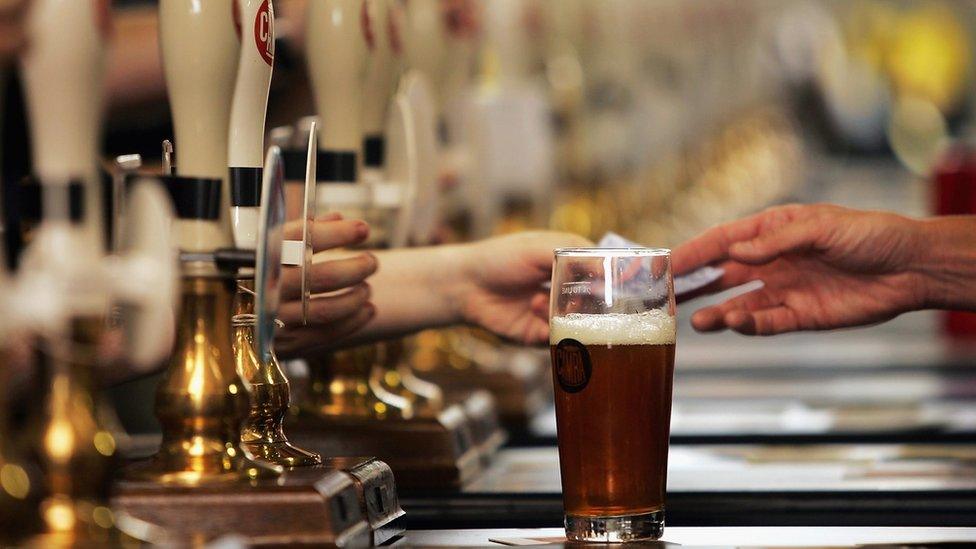Sinn Féin's McDonald questions Irish government coronavirus response
- Published
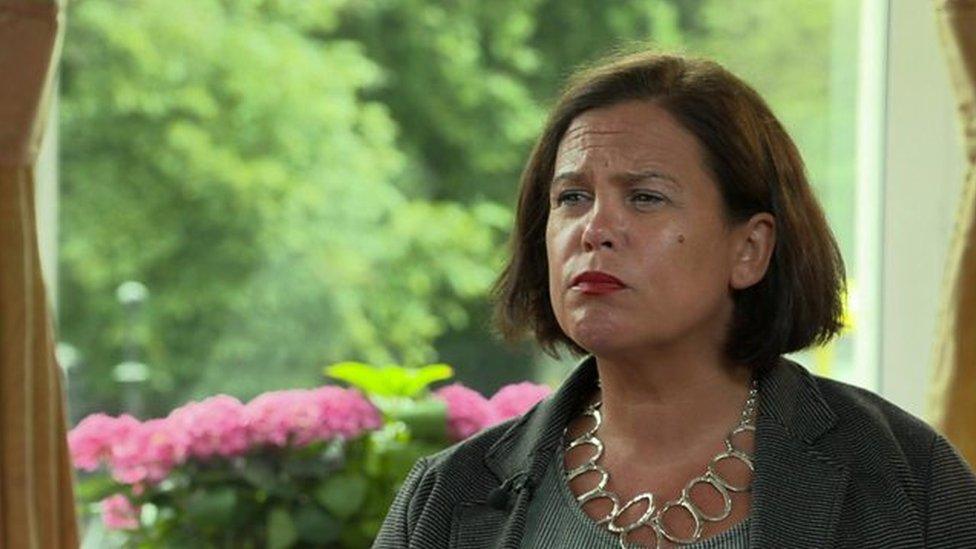
Protocol is needed to ensure government services continue, says Sinn Féin president Mary Lou McDonald
The Irish government's response to a suspected Covid-19 case raises serious questions, Sinn Féin president Mary Lou McDonald has said.
Cabinet members were told to restrict their movements after Health Minister Stephen Donnelly reported he felt unwell on Tuesday afternoon.
Initially it was announced they would have to self-isolate and parliament would be adjourned indefinitely.
But Mr Donnelly tested negative and the Dáil resumed business later on Tuesday.
"The idea that all of government would grind to a halt because one person, one individual minister had to be tested raises some serious questions as to how organised the government is," Ms McDonald said.
"If there isn't a sufficiently robust protocol then we are certainly going to have to re-visit it".
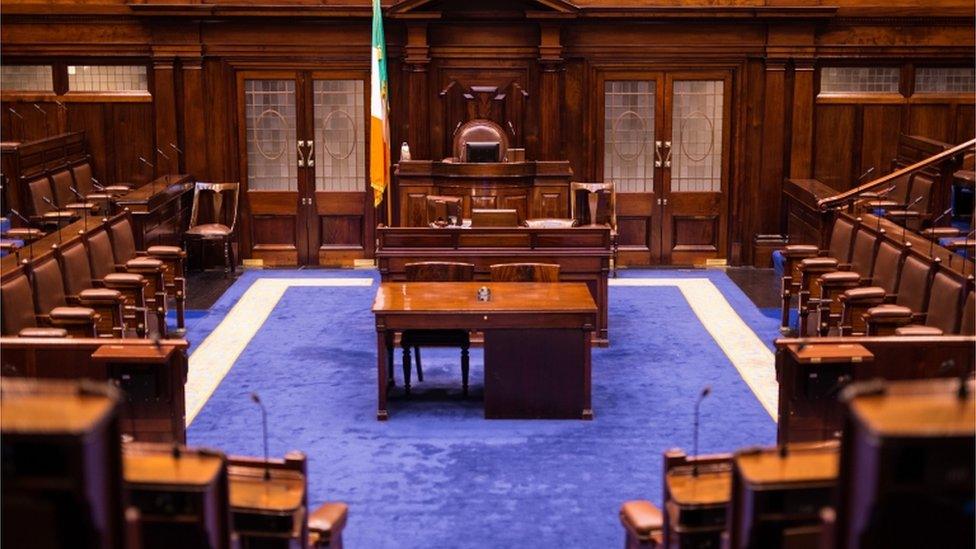
The Dáil (Irish parliament) was initially adjourned but it resumed business on Tuesday evening
On Wednesday, the National Public Health Emergency Team confirmed there had been three more deaths and 254 new Covid-19 cases in the Republic of Ireland.
It brings the total number of coronavirus deaths to 1,788 in the country.
Speaking earlier on BBC Radio Foyle, Ms McDonald said: "We are looking at dealing and living with this virus for quite some time to come and the idea of government in Dublin, or indeed in Belfast, not functioning is not a runner.
"You have to have an organised plan and a protocol and you must act safely but you should ensure that, to the best of your ability, services continue.
"In the times we are in with the Covid crisis, a Brexit crisis looming, the last thing we need in Dublin is a cabinet that cannot function."
Raised eyebrows
The Sinn Féin president also questioned the speed with which Mr Donnelly received his coronavirus test results.
"The health minister was very lucky to get the results from his test within a matter of hours, which is not the experience for countless regular citizens," she said.
"It has raised some eyebrows and raised questions on the testing and tracing system."
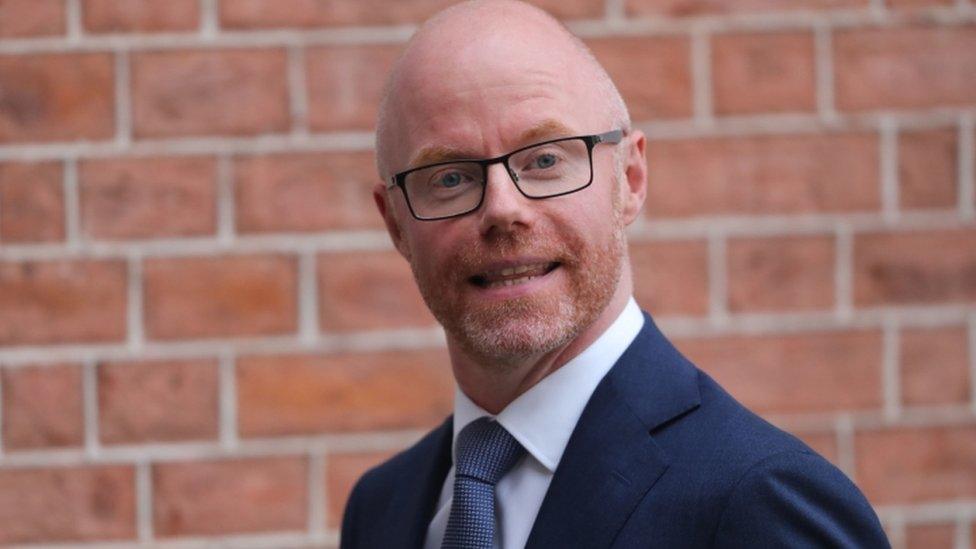
Irish Health Minister Stephen Donnelly reported feeling unwell on Tuesday afternoon
Taoiseach (Irish Prime Minister) Micheál Martin said the decision for the cabinet to restrict their movements came from "an abundance of caution".
The Ceann Comhairle (Speaker) Seán Ó Feargháil told the Dáil shortly after 17:00 local time that after "very serious information arising out of events today, the cabinet must now self-isolate".
However, the Dáil reconvened after 20:00, with Mr Ó Feargháil explaining that he had been advised the parliament should be adjourned and then recalled by the taoiseach.
Mr Donnelly had attended a press conference on Tuesday morning when the Irish government unveiled a five-stage plan on living with Covid-19.
'Dublin left in limbo'
The coronavirus plan outlined by the Irish government outlined stricter rules for Dublin over the next few weeks because of the increase in infections in the city.
Pubs that do not serve food can reopen on 21 September, except in Dublin where they must stay closed.
Visits to homes in the city are now limited to six people - with guests allowed from just one household.
Ms McDonald said the plan was not clear and called for clarity on Dublin restrictions.
"We need the government to be straight with the people of Dublin to let the city and county know where things are at and what the course of action is," she said.
She added that it was "crucial" to get testing right.
'Concerning trends'
Later on Wednesday, Acting Chief Medical Officer Dr Ronan Glynn said the situation was deteriorating not just in Dublin but also on a national level.
"Along with Dublin we have seen particularly concerning trends in (counties) Louth, Waterford and Donegal," he said.
"It is now absolutely essential that people action public health advice and act as if they or those close to them are potentially infectious," Dr Glynn added.
The R number, the average number of people an infected person passes Covid-19 on to after contracting the disease, is between 1.3 - 1.7, health authorities said.
Prof Philip Nolan from NPHET said he is "more concerned than I have been at any point since late April".
"Case numbers appear to be growing exponentially and are likely to double every 10 to 14 days if every one of us does not immediately act to break chains of transmission of the virus," he said.
- Published15 September 2020

- Published12 September 2020
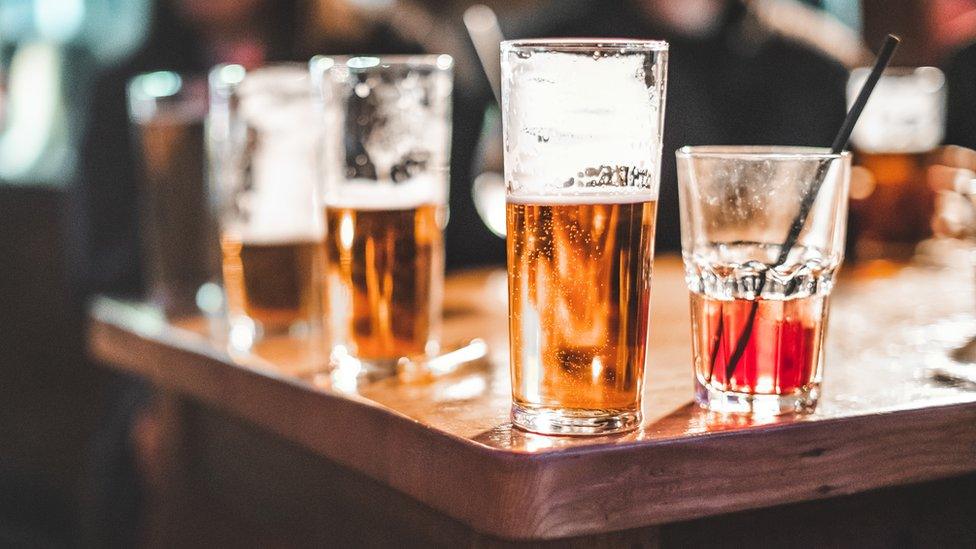
- Published8 September 2020
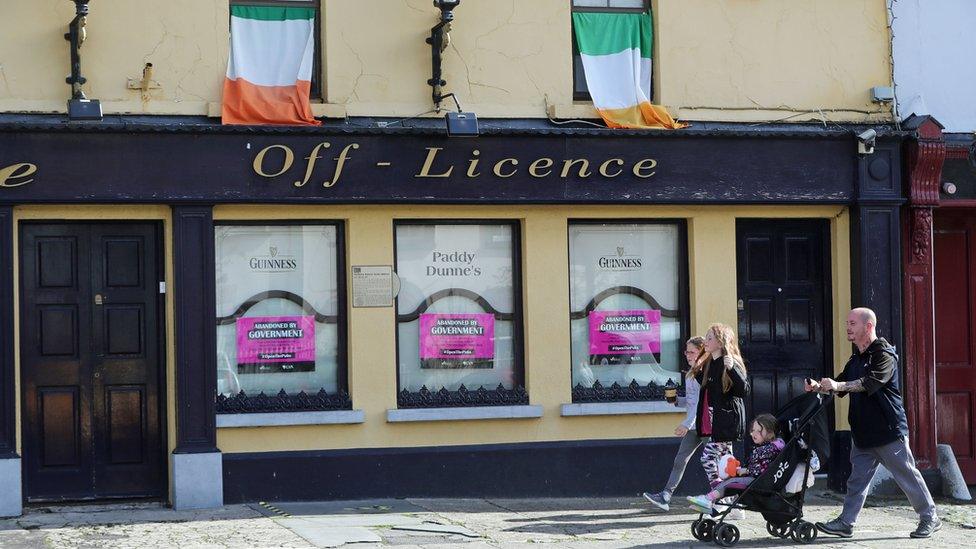
- Published9 July 2020
